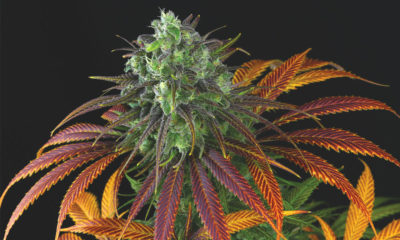
Cannabis
Mechoulam’s Message
Cannabis Now checks in with the top doc in cannabinoid science.
The world is beginning to embrace the adult-right to choose cannabis, and as it does, medical professionals are finally being given the tools to discover more about the human endocannabinoid system.
This full-body system of receptors handles specific tasks depending on the organ, tissue or cell in question, but its purpose is always to maintain homeostasis, or organic balance.
Cannabinoid receptors respond to internal cues to create effects like the physiological phenomenon known as a “runner’s high,” and also processes external cues from phytocannabinoids – the cannabinoids found in plants like cannabis.
Dr. Raphael Mechoulam is widely credited with discovering the endocannabinoid system. He was the subject of a documentary about his life’s work called “The Scientist,” and in it, he speculates that the endocannabinoid system might even play a key role for the beginning of all life — as a function of an egg accepting sperm.
Cannabis Now touched base with “the father of cannabinoid science” to gain his insights into several topics surrounding the future of medical marijuana.
Cannabis Now: The prevailing wisdom in the cannabis community is that CBD is “non-psychoactive.” Is that a misconception?
Dr. Mechoulam: “CBD lowers anxiety etc, hence it is psychoactive, but not like THC.”
Do you see any promising potential for cannabinoid therapy to treat conditions common to senior citizens?
“Depends on the disease, but I do not see cannabinoids as anti-Alzheimer’s drugs, at least not at the moment.”
Here in the states, people are now treating their pets with CBD. Do you think CBD is helpful for animals as well as humans? If so, please explain why.
“THC is certainly not for dogs that can get ataxia. Other [cannabinoids], again, it depends on the disease.”
Do you see any signs of mainstream medicine embracing our growing understanding of the endocannabinoid system? Where do you see promise?
“Physicians learn fast. As soon as more clinical trials are done and published, more and more physicians will be willing to prescribe cannabinoids.”
GW Pharmaceuticals is set to release Epidiolex in America. How do you think this will change cannabinoid therapy?
“We showed that CBD [Epidiolex by GW] is effective against epilepsy in patients 35 years ago. It’s time that it becomes a drug. Here in Israel it is approved for epileptic children.”
Originally published in Issue 24 of Cannabis Now. LEARN MORE
TELL US, what are you excited about in terms of the future of medical cannabis?




















